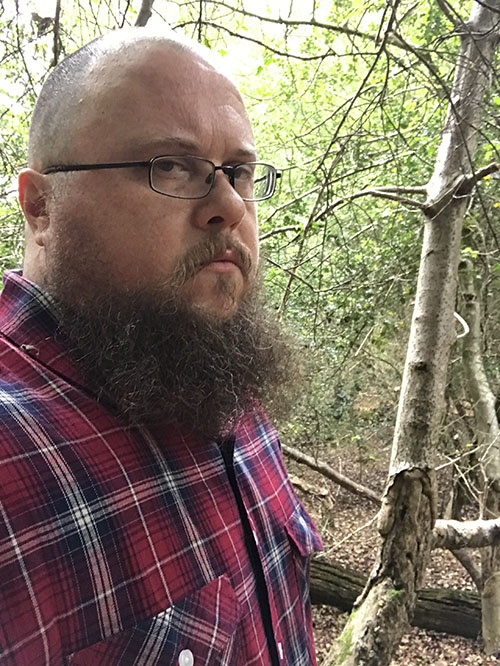01. Helloween
Keeper Of The Seven Keys Part II (1988)
Very few tunes anticipate the sound of an entire subgenre as powerfully as Eagle Fly Free, the first song on Helloween's game-changing third album. Ten years after its release, musicians the world over were frantically trying to replicate its magic ingredients.
There were the heroic, nut-squeezing pipes of self-trained vocal dynamo Michael Kiske; Kai Hansen and Michael Weikath’s intricate, high-energy twin-guitar leads; lush symphonic backing; Ingo Schwichtenberg’s explosive percussive momentum; and lyrics about birds of prey in flight. It started here.
And it progressed in jaw-dropping ways across the length of the perfectly sequenced album, with artful, reflective arrangements like You Always Walk Alone and March Of Time contrasting with the pointed craziness of Rise And Fall and Dr. Stein. Sometime bonus track Save Us neatly ramps up the album’s quotient of fist-pumping power bangers, the singalong chorus given gravitas by a portentous, philosophical spoken-word section.
Helloween slightly over-compensated for the old stereotype of ‘humourless Germans’ with their pumpkin-headed comic-book tomfoolery and zany lyrics (see Rise And Fall’s ‘The king of Los Angeles bought himself a teddy bear / And the queen became shameless, she did it with a chair’…) but there is pleasing mischief about the way that the Keeper albums have only the appearance of a grand fantasy narrative.
Despite appearing on many ‘best concept album’ lists, there’s no tale to speak of; the weight of the whole concept is carried by the throbbing, 13-minute title track, a windswept masterpiece bearing the full epic mother lode.
“No, we didn’t plan any concept album,” confirms Michael. “We just followed the sound and the signs we had. We only had the overall sound on our mind and we liked the tradition in having super-long tracks on the album to be played for the hippie heavy rock fans!”
Every subsequent power metal album owes Keeper II a debt; its songs have been covered by HammerFall, Sonata Arctica, Luca Turilli’s Rhapsody, Freedom Call, Twilight Force, Vision Divine and many more. “They created the whole genre of music that’s now known as power metal.”
This record got me into metal's melodic side
M Shadows, Avenged Sevenfold
Not my words, Carol, those are the words of big wrestler and Fozzy frontman Chris Jericho, singling out Keeper II as his “perfect album” in Metal Hammer earlier this year. “Metallica had the speed and Iron Maiden had the harmony guitars, but Helloween put it together – you had the massive double bass beat with these crazy, intricate harmonies… Michael is one of the greatest singers in history, and this is the greatest power metal album ever made.”
Avenged Sevenfold frontman M Shadows also places Keeper II in his top 10, telling Rolling Stone he first heard Kai Hansen’s classic motivational screamer I Want Out in a San Jose tattoo parlour: “I heard that song and I thought, ‘There was no way there could be any songs as crisp and clean and cool as this’… This record really got me into what was possible on the melodic side of metal.
"You didn’t always have to be brash or vulnerable like Korn or insane like System. This is like straight-ahead, almost feels like punk rock in terms of some of the tempos. But it’s just super-smooth and it’s just amazing songwriting to me.”
The symphonic backing was key to the LP’s distinctive and grand sound, something Kai flagged up in Metal Hammer in August 1988: “We still play fast, but it’s more in a classical direction. Many overdubs in an orchestral way,” explained the guitarist.
“We’ve used an emulator played by Tommy Hansen to simulate an orchestra at places. We’ve got a keyboard player coming on tour with us, to use whenever we think it might be useful. But we can play these songs with two guitars and they’d still sound good. There’s a lot of different directions on this album, some of the best tracks Helloween have ever done.”
In 2019, Michael Weikath credits Queen, Sparks, Uriah Heep, Rainbow, Deep Purple and ELO among the inspirations for the album’s symphonic urges, as well as an even older scene:
“Kai Hansen had a lot of classic and opera music from his mother, like Bach and Beethoven we listened to. I have Smetana and I’m a big fan of Haydn. And I wanted to have something like an old Hollywood choir to use on some songs.”
When Keeper II emerged in August 1988, Helloween were just embarking on a dream-ticket tour with Iron Maiden, kicking off with the opening slot at the Monsters Of Rock Festival, Castle Donington, in front of 85,000 rabid headbangers.
They were on the path to glory. But when Kai said I Want Out, he wasn’t kidding; he’d left by the end of the year, to form Gamma Ray (another of Germany’s greatest bands), while changing musical fashions mitigated against Helloween’s ascendancy. But with Keeper Of The Seven Keys Part II, Helloween laid a powerful claim on music history.
